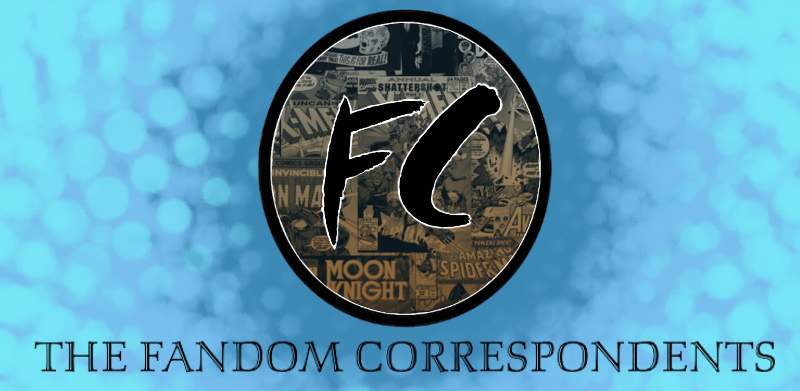My New Life as an Anime Fan — Your Lie in April
My New Life as an Anime Fan is a new segment from yours truly where I talk about older anime series that I missed out on and I’ve gone back to watch. I never got into anime until very recently, so join me on my journey as I watch some old gems and try to cultivate my newly found anime palate. Don’t worry; I’ll be putting spoiler warnings where needed so all you late-bloomers like me can read without concern.
“Spring is coming. A spring without you. . . is coming.”
Look, everyone. It’s been a rough April, emotionally speaking. Endgame came out. Game of Thrones is ending. Starbomb released their final album. I’ve had stuff. This would’ve been a great month to use My New Life as an Anime Fan to watch something fun and silly. Like Mob Psycho 100! That’s a fun, relevant show. Or maybe rewatch a Pokemon movie for nostalgia’s sake. But I didn’t do that. This month, I watched Your Lie in April, because I thought “Hey, that’s appropriate because it’s April and I’m secretly an emotional masochist.” So let me introduce this with a simple advisory message: If you’re going through a rough time, maybe visit this anime a little down the road. Watch something fun. Catch up with an old friend. Crash your car into a tree, something a little less painful than this show.
Your Lie in April is very sad. Anyone who knows anime knows this, and I knew this going into it. It tells the story of Kosei Arima, a piano prodigy of Mozart proportions, who left a promising music career behind with no explanation when his mother passed away. Now in high school, Kosei spends his time listening to music–never playing it–and spending time with his friends like most high schoolers do. But one day, Kosei meets Kaori (man, they couldn’t have picked names that were more different?), a high school girl known all over Japan for her incredible yet unorthodox skill at violin. The two form a friendship, and over the course of the show Kaori helps Kosei rediscover his love of music and the potential for love in the world.

I’m not going to talk about plot too much in this one; the plot is honestly pretty predictable but it’s executed very well. In a deviation from my usual segments, I’m also not going to talk about the characters very much. Kosei and Kaori are by far the most interesting characters, basically carrying the show on their beautiful, musical backs. Instead, I want to talk about the tone, because Your Lie in April is nothing but a crash course on how tone can be used to create a show with otherwise questionable properties.
Don’t get me wrong, Your Lie in April has a lot going for it. The music is beautiful, especially to a classical music nerd like me. Colors are utilized beautifully in every scene, and when the writing wants to, it really makes you feel the emotions behind the story. It’s done beautifully, but maybe…too beautifully?
Your Lie in April has a sad narrative that is easy to be invested in. However, I couldn’t help but feel a little manipulated while watching it, almost as if it was going out of its way to emotionally exhaust me. The tone often felt inconsistent, but I believe that inconsistency was intentional. By mixing up emotional and silly scenes so sporadically, the showrunners made sure the audience never feels comfortable or safe on a scene-to-scene basis. It’s that feeling of always needing to be on high alert for random, emotionally gut-wrenching events that produces the kind of exhaustion that Your Lie in April is famous–or perhaps infamous–for. For example, I remember one episode having two silly, genuinely funny scenes with visual gags flanking a portrayal of pretty severe child abuse. It was at that moment that I thought, “What is wrong with this show?!” And that’s when I realized that nothing was wrong with it. That’s exactly the shock they were trying to elicit.
This isn’t gonna be an article where I give a spicy, contrarian take about Your Lie in April being bad, because it isn’t. It’s incredibly good at what it sets out to do. Yes, the side characters are pretty weak in my opinion, but it utilizes color, music, and an efficiently small cast to tell an emotional story that audiences can relate to. It’s well-written, and it has some legitimately good humor without relying too heavily on anime tropes. But by the end of the show–and the ending is heartbreaking–I couldn’t help but feel like it all felt kind of cheap. You can predict how the show is going to end by around the 5th episode, but due to the heavy tonal shifts and the dialed-to-eleven emotionality, you are still gut-punched by the ending even as you watch the show carefully and deliberately deliver the punch to your gut in slow motion. I felt helpless, but more than that, I felt taken advantage of. The show is so heavy-handed that it feels weirdly manipulative at times. And as a viewer, I don’t like to feel manipulated. I’ve seen a lot of sad media in my life–The Notebook, Grave of the Fireflies, The Road, Jesse Eisenberg trying to play Lex Luthor–and for the most part, I’ve appreciated it because the emotions behind it were organic. Sadness can be a powerful experience because it’s relatable, but I don’t think the writers of Your Lie in April had much faith in its audience’s ability to identify with the characters or the story. Life is tumultuous all on its own; it doesn’t need to be a roller coaster for us to identify with it. Your Lie in April is a beautiful story, and I wish the creators had enough faith in themselves to know that that would have been enough.
At this moment, that show is the most emotionally powerful media that I never want to watch again.
So I guess, Your Lie in April, a spring without you really is coming.




